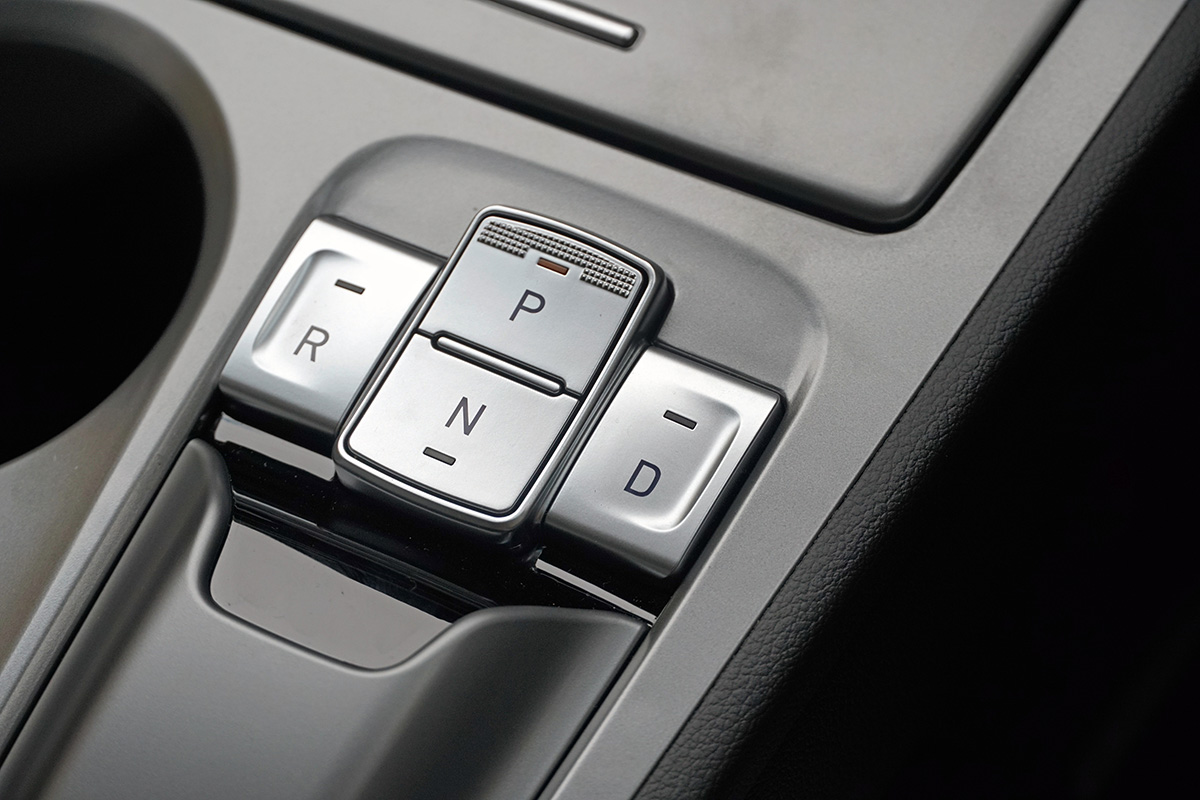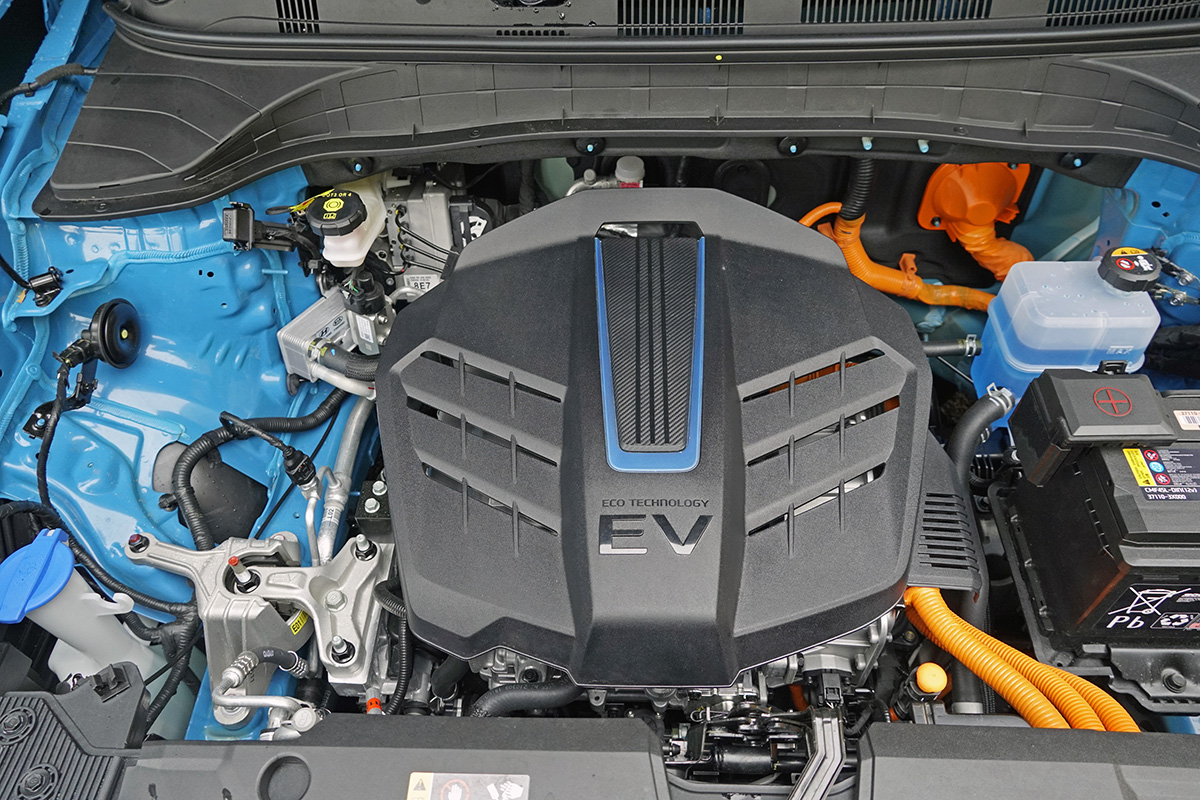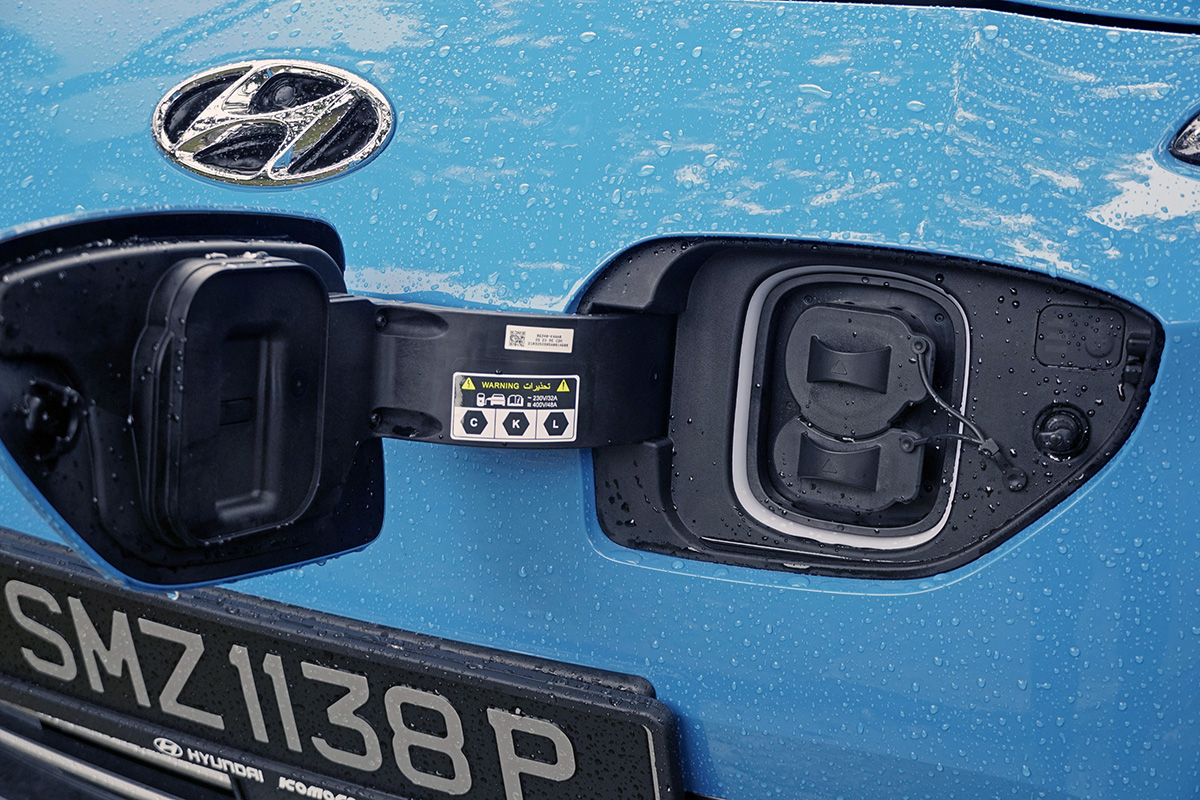2021 Hyundai Kona Electric Review: Electron Mainstream

Derryn Wong
22/07/2021
Hyundai’s fully-electric small SUV, the Kona Electric, is facelifted and still delivers capable mainstream electric motoring for Singapore
SINGAPORE – No, fully electric motoring is not mainstream yet. But if you have somewhere to charge a car, and want a sensibly priced battery electric vehicle (BEV), you should consider a Hyundai Kona Electric.
Since our initial review of Hyundai’s small, totally electric SUV in 2019, the BEV market has exploded. But that’s mostly in the premium segment – Audi, BMW, Jaguar, Mercedes-Benz, and Porsche have all added no-petrol cars to their lineups.

Hyundai was the first to offer a mainstream BEV in the form of its 2018 Ioniq Electric hatch (which has also been facelifted, in 2020), with the Kona Electric following shortly after. In 2021, the Kona Electric and Hybrid have both been facelifted.

It’s quite extensive as nip-tucks go: The entire front end is cleaner, there’s no longer even the impression of a grille, while at the rear, the taillamps are slimmer. If it looks vaguely familiar, it’s a car that aligns itself closely with the New EV Aesthetic pushed by Tesla, i.e. lots of clean surfaces, no grille, small lights.

Inside, the cabin remains largely the same. A ‘stickless’ centre console with shifter buttons, it has lots of room for stowage, and there’s even an additional shelf underneath that.

There are digital improvements: A 10.25-inch oblong-shaped driver’s display replaces the conventional instrument cluster. The 8.0-inch infotainment touchscreen remains the same, but it’s still easy to use, and has Apple CarPlay and Android Auto functionality, and wireless device charging.



Our 2019 test drive of the Kona Electric Long Range showed it could go the distance, but this time round the Kona does even better, at least with a lot of highway work.
We covered 200km in the car, which left an indicated charge of 30 percent left and a remaining range of 100km – in other words spot on for the quoted range of 300-ish clicks. But impressively, the trip computer showed 12.5kWh/100km – better than the quoted efficiency of 15kWh/100km – and good for a theoretical 313km.

All of the BEVs pluses are there too: Instant punch from the 395Nm of torque, better handling than you’d expect from a small SUV, with lots of stability and ease of use. It’s also quiet at speed.
It has a tonne of safety equipment too – everything from adaptive cruise, to blind spot monitoring, to rear and front cross traffic alerts. It’s a class-leading suite that doesn’t lack for features.

The drawbacks are that the cabin still has lots of hard plastics, which is expected in this price range, but you have to keep in mind you’re paying for what’s under your feet (the 39.2kWh battery pack). Also, the Kona tends towards the compact side of the small SUV equation, so don’t expect to carry three adults in the rear for long periods of time. The car’s 332-litre boot is also smaller than the Kona Hybrid’s (374-litres).



Finally, we get to the most important bit, the price.
The Kona Electric is actually cheaper than it used to be, thanks to EEAI and VES. In April 2019 the Standard Range model cost S$146,999 with a Cat B COE at S$43,102, and it costs less now, despite a higher COE price – S$140,888 with a Cat B COE at S$56,100.
But as a BEV, the Kona Electric is still not cheap compared to a mainstream gasoline car, or a similarly sized SUV – but in terms of head-on, electric SUV competition only the MG ZS EV is less expensive, at S$132,888 with COE.*
*The MG includes a charger in the price, while it’s an extra S$3-S$4k for the Korean cars.

One size up, Kia’s very capable Niro EV is S$155,999 with COE though it’s significantly more powerful with 204hp, and can travel at least 500km, as we’ve personally tested in Singapore. Unlike the Kona, it only comes in that flavour (no lower performance model), and it’s more of a competitor for the more powerful, Kona Electric Long Range at S$165,888 with COE.
And if that’s all too much hassle, well you can make the electric switch now (partially) with a hybrid: A good place to start might be the Kona hybrid, which is a lot less expensive at S$120k with COE, and there’s quite a few choices for small hybrids, including Toyota’s very popular Yaris Cross Hybrid, or Kia’s hybrid Niro.
Not much has changed for the Kona Electric – it’s still a pleasant BEV to drive, goes as far as it says it will, and is a good example of a mainstream electric car, and a prime example of what a future mainstream car will be.
What has changed is the landscape. Compared to 2019, when we first got to grips with the Kona Electric, the path forward for BEVs is now far clearer than it used to be.

Hyundai Kona Electric Standard Range S/R
| Electric Motor | 136hp, 395Nm |
| Battery | Lithium ion, 39.2kWh |
| Charge Type / Time | 7.3kW AC wallbox / 8 hours |
| Fast Charge Type / Time | 150kW DC / 1 hour |
| Electric Range | 305km |
| 0-100km/h | 9.9 seconds |
| Top Speed | 155km/h |
| Efficiency | 15 kWh/100km |
| VES Band | A1/ -S$25,000 |
| Agent | Komoco Motors |
| Price | S$145,888 with COE and VES |
| Availability | Now |
| Verdict | Not quite mainstream affordable yet, but it’s cheaper than before and brings solid, electric motoring at a sensible price |
Related Models










 on the go
on the go





